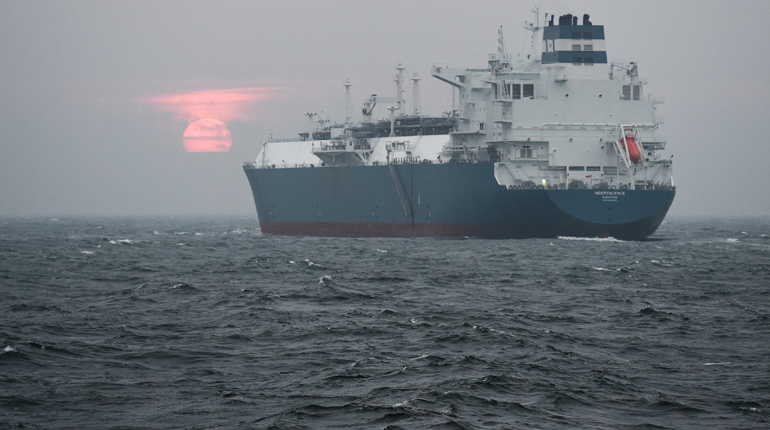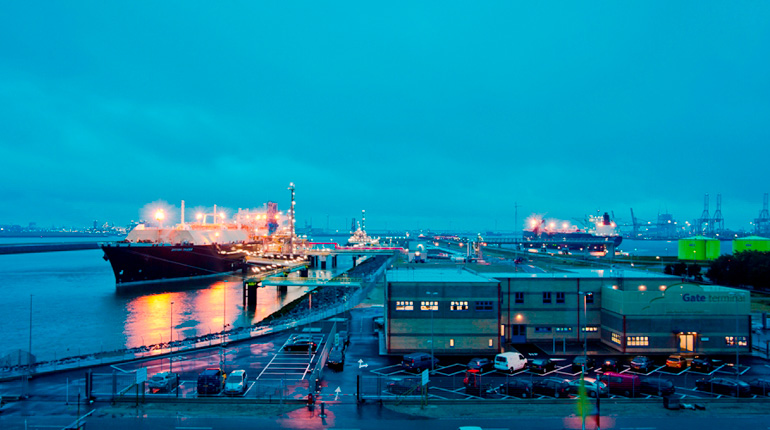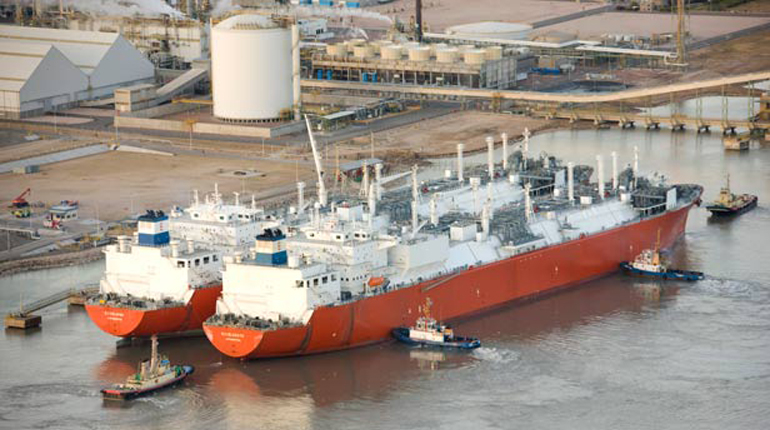 The Independence FSRU offers competition to Russian gas supplies in the Baltic states. (Robertas Dackus)
The Independence FSRU offers competition to Russian gas supplies in the Baltic states. (Robertas Dackus)
Lithuania may not have secured the compensation it sought from Gazprom in the arbitration case that concluded last week, but the largest Baltic gas consumer claimed victory nonetheless.
In a judgement delivered on 22 June, the Stockholm Arbitration Court ruled Gazprom had a conflict of interest in acting as both supplier and shareholder in the importing company Lietuvos Dujos, the Lithuanian Energy Ministry reported, but the court did not agree that compensation was due dating back to 2006.
For its part, Gazprom also claimed success and said the court had "rejected all claims made by Lithuania with respect to the terms of purchasing natural gas", which included its overall €1.4 billion ($1.59 billion) claim for compensation.
"In its ruling, the SCC [Stockholm Chamber of Commerce] rejected all of Lithuania’s allegations of unfair prices for gas supplied by Gazprom in the period from 2006 through 2015 to Lietuvos Dujos, the Lithuanian-based company that used to have Gazprom and Lithuania as its shareholders," Gazprom said in its statement.
Lithuania’s Energy Ministry said it was "difficult to prove a specific breach of the agreement as a result of the abstract nature of the terms and conditions of the Lietuvos Dujos Share Purchase Agreement".
"However, Gazprom also failed to justify all of its defence arguments," the Energy Ministry added.
Vija Pakalkaite, a visiting researcher covering the Baltic gas market at the Central European University, told Interfax Natural Gas Daily that Lithuania had only lost "because the wording in the 2004 privatisation agreement is unclear".
The statement from Lithuania’s Energy Ministry noted that the €500,000 [$550,000] costs of the case will be shared equally between the two parties, "proving that Lithuania’s pleas were founded".
"The arbitration is the fruit of a hard, long-fought battle against the Russian giant," Rokas Masiulis, Lithuania’s energy minister, said in a statement. "The decision confirmed that we were headed in the right direction: Gazprom had a conflict of interest, which disappeared with the implementation of the EU Third Energy Package," he added. Masiulis was referring to the unbundling of Lietuvos Dujos that saw Gazprom lose its stake in the company.
Masiulis argued that, despite the result of the arbitration case, Lithuania has met all of its objectives in the gas sector. Unbundling has split Lietuvos Dujos into separate companies, and the arrival of the Independence FSRU into port at Klaipeda in winter 2014 gave Gazprom competition in the region for the first time.
"Furthermore, we achieved a victory before the end of the arbitration. After all, our state commenced legal proceedings against Gazprom and built an LNG terminal. As a result, Gazprom has been forced to reduce gas prices, and users have saved more than €100 million per year," Masiulis said.
According to government statistics, Lithuanians will pay 43% less for their gas this summer compared with the same period in 2012, marking the most rapid fall in household tariffs across the EU.
Consumption falls
Norway’s Statoil is supplying gas into the Klaipeda terminal under the terms of a 2014 deal that outlined deliveries of 540 million cubic metres (MMcm) per year between 2015 and 2020. Gazprom’s deliveries to Lithuania dropped from 2.7 billion cubic metres in 2013 to 2.2 bcm in 2015.
"After Gazprom’s price increase in 2011, Lithuania’s total gas consumption has fallen significantly. The Lithuanian state energy companies are seeking to expand the consumer base in order to sell gas coming via the new LNG terminal," Pakalkaite said.
As Lithuania seeks to rebuild demand following the expiration of its long-term contract with Russia in 2015, Gazprom has responded by launching an auction for the Baltic market to try and claw back market share. It sold 420 MMcm of the 560 MMcm it offered in March, and another auction is likely in 2017.
Lithuania has been in arbitration with Russia over its gas price policy since 2012, arguing that when Lietuvos Dujos was privatised in 2004 the Russian export monopoly agreed to export gas at a "fair price, subject to the energy resources market in Lithuania and the dynamics of alternative fuel prices".
The relationship quickly turned sour as the prices charged to different Baltic consumers diverged. Pakalkaite noted that, although the legal challenge covered prices going back to the mid-2000s, the biggest divergence in Baltic rates emerged between 2010 and 2011, with Lithuania and its neighbours paying increasingly different prices.
"They remained constantly higher for another four years. Based on the import price estimates, in 2011, on average Lithuania paid 20% more for Russian gas imports than Latvia and 15% more than Estonia," Pakalkaite said.








Talk to us
Natural Gas Daily welcomes your comments. Email us at [email protected].